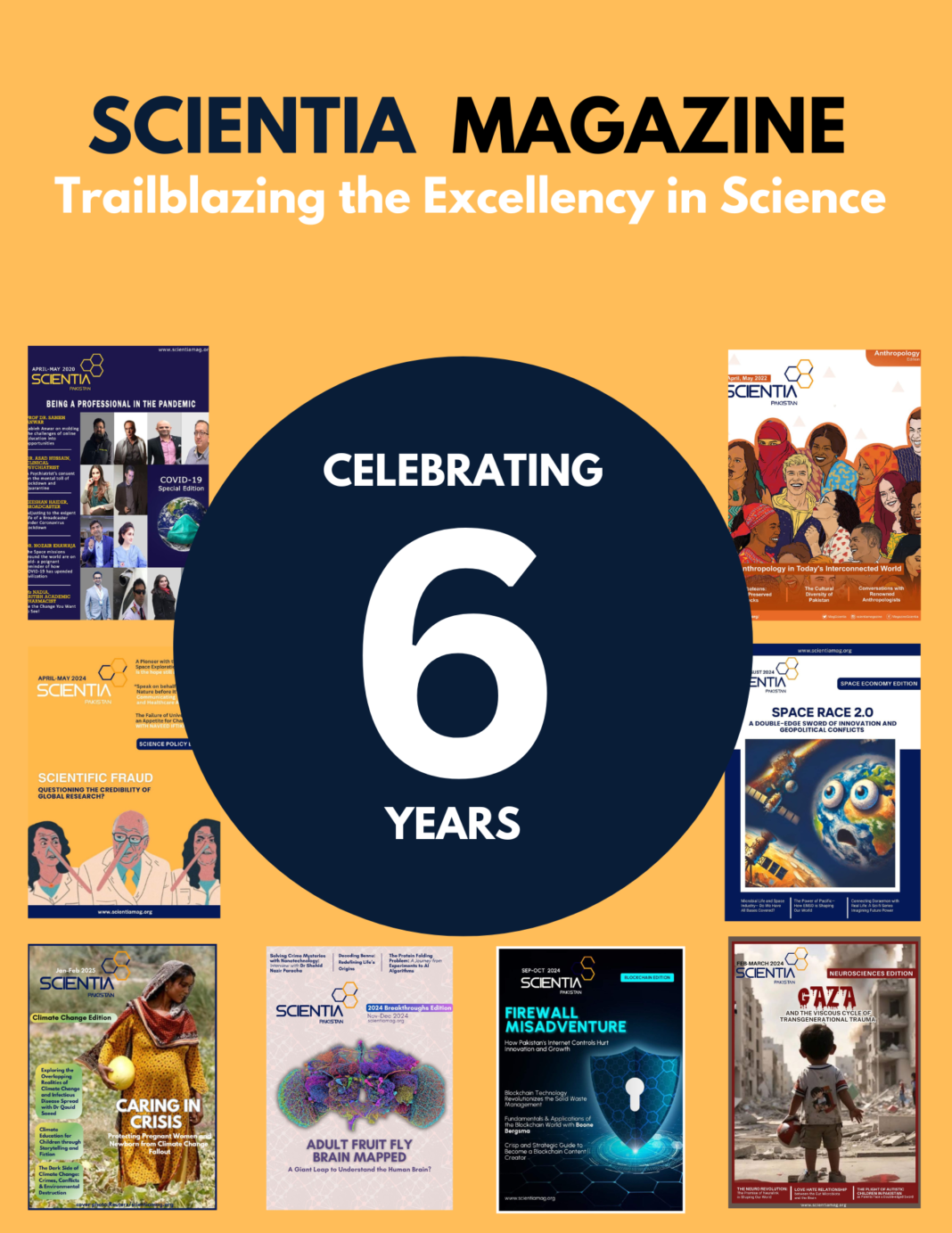The concept of an ideally informed society refers to citizens recognizing the importance of staying current and actively engaging with new ideas, developments, and claims to truth. They approach this engagement both openly and critically. As a result, individuals become more knowledgeable, make better decisions, and are in a stronger position to realign their values in response to emerging progressive norms and beliefs.
Given these potential benefits, it is particularly important to focus on those who do not value staying informed or make no effort to do so. During the COVID-19 pandemic, the emergence of the Omicron variant, after the widespread availability of vaccinations and booster shots, showed that individuals with less access to information were more likely to end up in catastrophic situations.
In Pakistan, the significant gap between science and journalism became evident during the pandemic. Major media outlets often lacked trained science journalists and relied instead on editors who had limited skills in verifying the authenticity of news related to medicine, healthcare, and vaccination.
Furthermore, no educational institutions in Pakistan offer courses or training in science journalism or reporting. As a result, key media outlets are generally unaware of the fundamental standards of science journalism. Consequently, the public tends to focus on political and entertainment news, showing little interest in scientific topics or fact-based science reporting.
The public often struggles to differentiate between credible scientific news and unsubstantiated pseudoscientific claims. During the lockdown, Scientia Pakistan played a crucial role and continues to do so in the post-COVID era to address this issue.

Since its founding, Scientia Pakistan has been dedicated to encouraging students to learn about and engage with science through various programs, including science writing internships, workshops, and hands-on activities. The organization focuses on strategies that capture the imagination of young people, encouraging them to analyze problems using scientific principles and to think creatively.
Here is a collection of opinions of our former interns, writers, and experts about how Scientia is effectively playing its role in fostering a critically informed society in Pakistan and instilling passion in students for science writing.
Khadija Tariqa, Science Writing Interns Cohort Three
As an early career researcher in biological sciences in Pakistan, I can say that Scientia is doing an important job in science communication and public outreach. In a time when sensationalism and misinformation are everywhere, Scientia stands out as a responsible and reliable publication.
I had the chance to be part of their third internship cohort, and it was one of the most well-organized writing internships I have joined. The program offers a great opportunity to learn science writing and build professional connections. I highly recommend it to people of all ages, from school students to PhD scholars.
Ifra Zaidi, Science Writing Intern Cohort Three.
I am Ifra Zaidi, a young researcher and aspiring science writer. The Scientia Pakistan Science Writing Internship has been one of the most transformative experiences of my academic and professional journey. This program taught me how to translate complex scientific concepts into simple, engaging narratives that can effectively reach diverse audiences.
It boosted my confidence, refined my writing skills, and deepened my understanding of the importance of science communication in today’s world. More than just skill development, this internship inspired me to contribute passionately toward raising public awareness of scientific knowledge with enthusiasm and purpose.
Hifz U Rahman, Science writing Internship Cohort three
Scientia is a platform striving to eliminate the obstacles between science and society. Scientia Magazine not only disseminates scientific knowledge but also empowers individuals to become effective science communicators. Hence, fostering a more informed and scientifically literate society.
Science writing internship program nurtures science communicators. Interns engage in hands-on activities, crafting narratives on complex topics and making them accessible to a diverse audience. Webinar featuring seasoned science journalists shares invaluable insight into effective communication strategies.
Zainab Dar, Science Writing Intern Cohort Three
Scientia’s efforts to combat misinformation are commendable. It has publication standards of the international level, where the credibility of the sources used is verified for every article. Any bias or influence that selectively presents information to align with their views is avoided. Any kind of sensationalist language that provokes a strong uproar is avoided.
Multiple credible sources are used to write articles, and evidence of verified sources and images is checked before uploading any article. The use of deepfakes and AI is prohibited at all costs, and articles are also written with an approach towards empathy and critical thinking.
Moreover, quality over quantity is encouraged so viewers can relate more to authentic and accurate information being fed to them.
Dr Alex Dainis, a famous science communicator
Science is all about making the invisible visible, whether it’s going back to the moon or observing it on the cellular level. Especially, being able to see things that no one has ever seen before all over history, and to learn from them, and advance the entire human civilization as a whole. I believe that start-ups like Scientia Pakistan, in developing countries, are playing a vital role in making people aware of the significance of science in their daily lives.
Dr Bushra Anjum, Advisory Board Member, Scientia Pakistan
We are at the brink of the fourth industrial revolution, powered by a fusion of technologies that are quickly blurring the lines between real and virtual, physical and digital. We need to guide and inspire a tech workforce ready for this unprecedented, disruptive future where quick obsolescence may be the biggest threat and remaining relevant, the biggest struggle.
The most important training in this regard is to help future STEM professionals grow a generalist mindset. I am glad to be an advisory board member of Scientia Pakistan, which is an emerging entity in science journalism internationally.
Read more about Scientia’s Science Writing Internship Program here

Saadeqa Khan is the founder, CEO, & Editor-in-Chief of Scientia Pakistan. She’s a member of the Oxford Climate Journalism Network (Second Cohort) and NASW. Saadeqa is a fellow of NPF Washington, The Falling Walls Foundation, and the Science Journalism Forum. Saadeqa has won several international journalism grants and awards for her reports.

